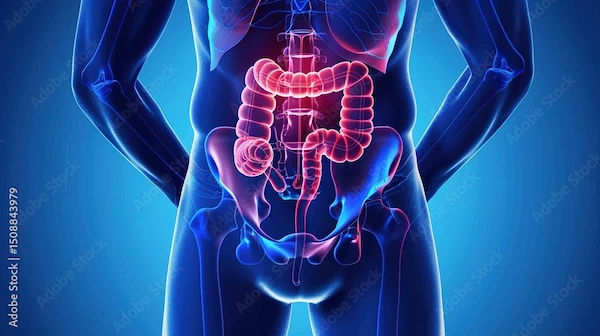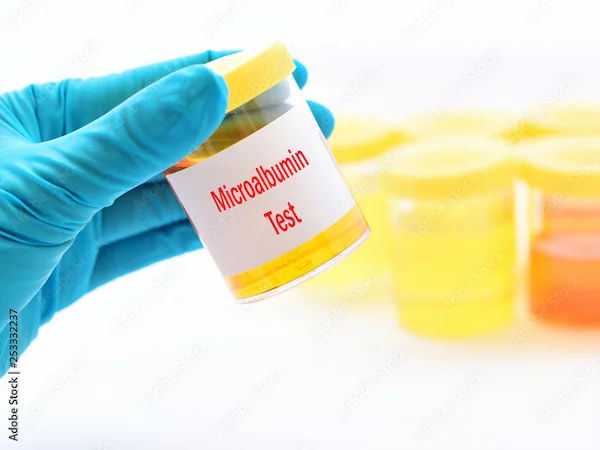Dysuria Causes & Prevention
Experiencing painful urination (dysuria)? Find out the causes, how to prevent it, and when to see a doctor for relief.

Written by Dr.Sonia Bhatt
Last updated on 3rd Jul, 2025

Dysuria, the sensation of pain or discomfort while urinating, is a common yet often misunderstood health issue. While it might seem like a minor inconvenience, persistent or untreated dysuria can point to serious underlying conditions, from urinary tract infections (UTIs) to sexually transmitted infections (STIs) or even bladder stones. Understanding what causes dysuria and how to prevent it can help you feel better and avoid future problems. In this article, we’ll look at the most common causes of painful urination and simple steps you can take to keep your urinary system healthy.
What is Dysuria?
Dysuria refers to any discomfort or pain experienced while urinating. This symptom can be sharp, burning, or dull and may be localised to the urethra, bladder, or genital area. Dysuria can be associated with other urinary symptoms like increased frequency, urgency (a constant need to urinate), cloudy or bloody urine, and lower abdominal pain. Though dysuria is not a disease, it is often an indication of an underlying problem.
Common Causes of Dysuria
There are several potential causes of dysuria, ranging from infections to underlying health conditions. Here are some of the most common causes:
Urinary Tract Infections (UTIs)
UTIs happen when bacteria get into the urinary system and cause an infection. They can affect the bladder, urethra, or kidneys. UTIs are one of the most common reasons people experience painful urination.
Sexually Transmitted Infections (STIs)
STIs like gonorrhoea, chlamydia, and herpes can cause painful urination. These infections are spread through sexual contact and can affect the urinary tract, making it painful to pee.
Kidney Stones
Kidney stones are small, hard chunks that form in the kidneys. As they move through the urinary tract, they can cause severe pain, including pain when urinating.
Chemical Irritants
Certain products like douches, scented soaps, and bubble baths can irritate the urinary tract. Using products with harsh chemicals can lead to painful urination, so it’s better to choose gentle, unscented options.
Prostate Conditions (in Men)
In men, problems with the prostate gland, like prostatitis (inflammation) or an enlarged prostate, can lead to painful urination.
Urethral Stricture
A urethral stricture is when the urethra, the tube that carries urine out of the body, becomes narrow. This can make it harder for urine to flow and cause pain while urinating.
Ovarian Cysts (in Women)
Ovarian cysts are fluid-filled sacs that form on the ovaries. If they press on the bladder, they can cause discomfort and pain while urinating.
Consult Top Urologists
Less Common Causes of Dysuria
While the causes listed above are the most common, there are other, less frequent causes of dysuria:
Bladder Cancer
Although it’s rare, bladder cancer can cause painful urination. Other symptoms might include blood in the urine, frequent urination, and pain in the lower abdomen.
Interstitial Cystitis
This is a condition where the bladder becomes inflamed and painful, leading to a feeling of pressure and discomfort. It’s also called painful bladder syndrome, and doctors are still unsure of its exact cause.
Trauma or Injury
Injuries to the urinary system, like those from childbirth, surgeries, or accidents, can cause pain during urination. Even activities like cycling or horseback riding can sometimes lead to irritation and discomfort.
Prevention of Dysuria
Preventing dysuria, or painful urination, is all about making small changes to your daily habits and being careful with your urinary health. Here are some easy and effective tips to help you avoid this discomfort:
Stay Hydrated: Drinking enough water is one of the best ways to prevent dysuria. Water helps dilute your urine, which can reduce irritation in the urinary tract. It also helps flush out bacteria and toxins that could lead to infections. Aim to drink at least 8 glasses of water a day or more if you're active or live in a hot climate.
Practice Good Hygiene: Good hygiene plays a key role in preventing urinary tract infections (UTIs) and other causes of dysuria. Here are some helpful hygiene tips:
Wipe from front to back: This helps prevent bacteria from the rectal area from spreading to the urethra, which can lead to infections.
Wash your genital area daily: Use mild, unscented soap and water to keep things clean without irritating the area.
Avoid harsh hygiene products: Douches, scented soaps, and bubble baths can irritate the urinary tract and should be avoided.
Urinating Regularly and After Intercourse: Holding in your urine for too long can increase the risk of UTIs, which often cause dysuria. Try to urinate regularly, and make sure to empty your bladder completely. Also, urinating after sex helps flush out bacteria that could have entered the urinary tract during intercourse.
Wear Breathable Underwear: Wearing cotton underwear and loose-fitting clothes helps your genital area stay dry and allows it to breathe. This reduces moisture buildup, which can create a place for bacteria to grow. Always change out of wet or sweaty clothes quickly to avoid irritation.
Stay Clean and Dry: Keeping the genital area clean and dry is key to avoiding infections. After swimming or exercising, change into dry clothes as soon as possible. Wet clothes can encourage bacteria growth, so staying dry helps prevent problems.
Avoid Irritants: Certain products and environments can irritate the urinary tract, making you more prone to dysuria. To reduce irritation:
Avoid scented personal hygiene products: This includes soaps, deodorants, and sanitary products like pads and tampons.
Use mild laundry detergents: Choose unscented detergents for washing clothes that come in contact with your genital area.
Be cautious with public hot tubs and pools: These can contain irritants and bacteria that may lead to infections.
Manage Chronic Health Conditions: Chronic health conditions, like diabetes or prostate problems in men, can make you more likely to experience dysuria. Work closely with your doctor to manage these conditions. Regular check-ups and keeping health problems under control can help reduce your risk of painful urination.
Use Protection During Sexual Activity: Condoms are important for preventing sexually transmitted infections (STIs) that can cause painful urination. Practising safe sex and having regular STI tests can help protect both you and your partner. It’s also important to talk openly with your partner about sexual health.
Avoid Certain Foods and Drinks: Some foods and drinks can irritate the bladder and increase the chances of dysuria. If you're prone to urinary irritation, try to limit or avoid:
Caffeinated drinks such as coffee, tea, and soda can irritate the bladder.
Alcohol can dehydrate the body and irritate the bladder.
Spicy foods may cause bladder irritation in some people.
Artificial sweeteners can irritate the bladder of certain individuals.
When to Seek Medical Help
While preventive measures can significantly reduce the risk of dysuria, it's important to seek medical attention if you experience:
Severe or persistent pain during urination
Blood in the urine
High fever or chills
Nausea or vomiting
Pain in the back or sides
These symptoms may indicate a more serious underlying condition that requires prompt medical intervention.
Conclusion
By adopting healthy habits and making informed choices, you can effectively prevent dysuria and maintain a healthy urinary tract. Staying hydrated, practising good hygiene, and using protection during sexual activity are just a few ways to reduce the risk. If you experience persistent or severe symptoms, consult a healthcare provider for proper diagnosis and treatment.
Consult Top Urologists
Consult Top Urologists

Dr. Sateesh Marriwada
Urologist
17 Years • MBBS, MS (General Surgery), Mch ( Genito Urinary Surgery)
Visakhapatnam
Apollo 24|7 Clinic - Andhra Pradesh, Visakhapatnam

Dr Tharaka Mourya Nutulapati
Urologist
7 Years • MBBS, MS (General Surgery), Mch ( Urology)
Visakhapatnam
Apollo 24|7 Clinic - Andhra Pradesh, Visakhapatnam

Dr. Sandeep Maheswara Reddy Kallam
Urologist
6 Years • MBBS, MS (General Surgery), M Ch (Genito-Urinary Surgery), Post Doctoral Fellowship in Uro-Surgical Oncology
Visakhapatnam
Dr. SANDEEP MAHESWARA REDDY K _- best Urologist in visakhapatnam, Visakhapatnam
(250+ Patients)

Dr. Prabir Basu
Urologist
19 Years • MBBS, MS General Surgery, DNB Genito-Urinary Surgery
Jodhpur Park
Dr. Prabir Basu urology clinic, Jodhpur Park
(125+ Patients)

Dr. Adittya K Sharma
Urologist
16 Years • MBBS MS MCH
Lucknow
Dr A K SHARMA, Lucknow
Consult Top Urologists

Dr. Sateesh Marriwada
Urologist
17 Years • MBBS, MS (General Surgery), Mch ( Genito Urinary Surgery)
Visakhapatnam
Apollo 24|7 Clinic - Andhra Pradesh, Visakhapatnam

Dr Tharaka Mourya Nutulapati
Urologist
7 Years • MBBS, MS (General Surgery), Mch ( Urology)
Visakhapatnam
Apollo 24|7 Clinic - Andhra Pradesh, Visakhapatnam

Dr. Sandeep Maheswara Reddy Kallam
Urologist
6 Years • MBBS, MS (General Surgery), M Ch (Genito-Urinary Surgery), Post Doctoral Fellowship in Uro-Surgical Oncology
Visakhapatnam
Dr. SANDEEP MAHESWARA REDDY K _- best Urologist in visakhapatnam, Visakhapatnam
(250+ Patients)

Dr. Prabir Basu
Urologist
19 Years • MBBS, MS General Surgery, DNB Genito-Urinary Surgery
Jodhpur Park
Dr. Prabir Basu urology clinic, Jodhpur Park
(125+ Patients)

Dr. Adittya K Sharma
Urologist
16 Years • MBBS MS MCH
Lucknow
Dr A K SHARMA, Lucknow


